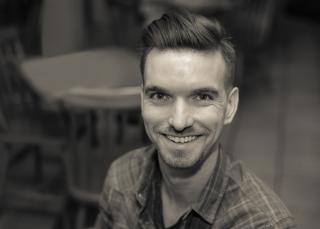My name is Dr Patrick Holloway and I work at the ASEM LLL Hub at UCC. As CR&DALL members work closely with the ASEM LLL Hub, I am pleased to take the opportunity to tell subscribers a little about my background with adult education.
After finishing my Masters in Creative Writing from the University of Glasgow, I moved to Porto Alegre, Brazil, to spend time with my soon-to-be wife, who is from there. Through my undergraduate and Masters degrees, I worked with teaching English and English literature, and when I moved to Brazil, I started teaching in an English school for adult learners. I also went on to do my PhD in PUCRS, where I would end up teaching courses, too, as well as at USP.
In 2016, I opened my own language school for adult learners, which mixed culture with language. My main approach was to create English language courses that were functional, diverse and would appeal to adult learners who had unsatisfactory experiences with learning English in the past. This, through my research in the school, was for varying reasons, but the most common reasons were: material used in classes; timetables; connection with classmates; subject matter.
Whilst doing my PhD and working, I had to quickly master the complex and often overwhelming structures and rules of Portuguese. I was able to identify with my students, as I was going through the same process. The books were dated, I was in the wrong level and grouped with students with whom I did not have much in common, and the time of the classes left me victim to rush hour traffic, which in Brazil is frantic and aggressive.
I wanted my students to first enjoy the classes. It is surprisingly common how often this is overlooked. Most students who came to my school and did the placement interview complained of their previous experiences. The burden of learning English. I liked to give the example to them of how I can wake up at 6am to play tennis, but never to go to the gym. Once you enjoy something, the motivation follows. So, I went about getting to know each student before they started at the school. Creating ‘tailor made’ classes for those who studied privately, and if studying in a group, making sure they went into one that was not only of their level, but had students who were of a similar age, had similar interests, and principally, had common goals in their journey to second (or third, sometimes fourth) language acquisition.
Each student chose their preferred time to have class. The material we used was modern, interesting and tied in closely with the English they needed in their day-to-day. I should mention, too, that the school was modern, had a bar and coffee area, and there were monthly happy hours for all students to connect and practice their English. I also had events in English: St. Patrick’s day, with live Irish music and quizzes; TV night, with clips and vocabulary games. Also, I tried to make sure that there were courses for every type of student: English Through Literature, English for over 60s; English through Music; English through Films; Culture Classes; Cooking classes in English; Book clubs.
What I soon learned was that when the classroom embraced lifelong learning, the experience was better not only for the students, but also for the teachers. The content was rich, the learning process was enjoyable, and the students’ view and approach to learning would never be the same again. I had students from all paths of life, CEOs of multinational companies, professors, lawyers, cooks, retired workers, writers, nightclub owners. I also had outreach programs for adult learners who had never studied English before due to the limitations that the severe disparity of wealth inflicts. It was an all-inclusive, welcoming environment that focused on the needs, restraints and barriers that a lot of adult learners face.
Lifelong learning in Brazil, and access to the type of education that Paulo Freire fought for, is certainly under attack from the far right, who sees his ethos as dangerously subversive. What is important, amongst the onslaught from Bolsonaro and other politicians who seem to believe he was a deranged revolutionary, is to contextualize Freire’s views on education, in relation to Lifelong Learning. His views on traditional education, that could sometimes ‘dehumanise’, is an important view when thinking about adult learners who have had damaging experiences in their education journey in the past. Just as important is his ideas about the ‘banking concept of education,’ that leaves very little room for adult learners’ experiences. One thing is certain, though, and it is something that Freire himself believed: knowledge and culture is always changing. How we adapt to this is crucial in context of adult learners and providing positive experiences in their educational journeys.
That being said, I’d like to thank Michael Osborne for the invitation to write for CR&DALL. I’d also like to reach out to anyone working in Brazil, or any Brazilian colleagues here. I’d be happy to help out and collaborate with you in the future.
Stay safe and thank you,
Dr Patrick Holloway
Discussion topics:
- Log in to post comments














Latest Comments